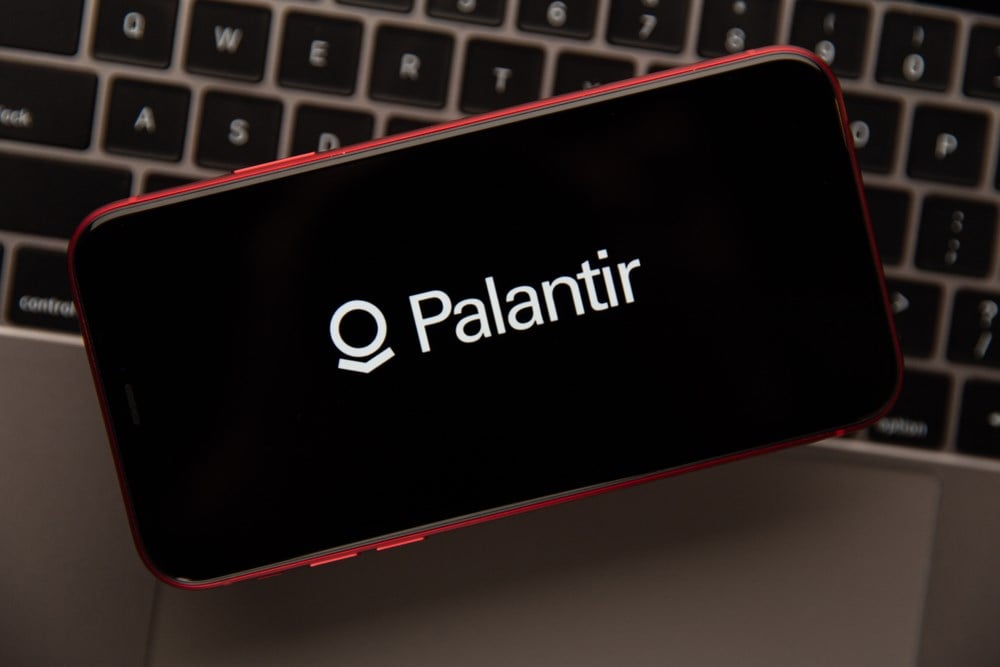
It wasn’t so long ago that Wedbush analyst Dan Ives lavished praise on Palantir Technologies Inc. (NYSE: PLTR), waxing ecstatic over the company’s future as an undiscovered AI play, adding the company is on track to monetize what’s potentially a trillion-dollar opportunity.
In media interviews, Ives likened Palantir to international soccer star Lionel Messi, who can seemingly turn a missed opportunity into a winning play.
But as it becomes clear that AI hype is waning, and investors want to see some actual dollars coming in the door due to AI, Palantir stock is struggling.
Ives’ comments caused the stock to gap up initially, and Palantir shares rallied to a high of $20.24 on August 1. Ultimately, that didn’t do anything for the stock’s price performance, as you can see on the Palantir Technologies chart.
Stock’s Decline Began Ahead Of Q2 Report
Denver-based Palantir is a data analytics and software company that made a name for itself by serving government agencies, including the military, although it's making inroads into the enterprise market.
The stock began sliding ahead of Palantir’s second-quarter earnings report on August 7. In the quarter, Palantir earned 5 cents a share, a big improvement over a loss of a penny per share in the year-earlier quarter. Revenue came in at $533.3 million, up 13%.
As you can see using MarketBeat’s Palantir Technologies earnings data, those results met analysts’ bottom-line views and fell slightly consensus below top-line views.
The company raised its guidance for the current quarter, but investors weren’t impressed. The stock skidded more than 15% for the week ending August 11.
After the earnings report, six analysts boosted their price targets on Palantir, but Morgan Stanley’s Keith Weiss wasn’t buying into the prevailing views.
A Price Target Increase That Doesn’t Mean Much
On August 31, he downgraded the stock to “underweight” from “equal weight,” although he boosted his price target to $9 from $8. That price target increase was faint praise, however. Shares closed at $15.18 on September 1, more than 68% higher than Weiss’ target. In other words, Weiss is still saying he expects the price to fall, but by not quite as much.
Palantir stock is holding at its 10-day moving average, although that’s not really saying much, either. The 10-day line is currently below the 50-day average, which you only see when a stock has been trending lower.
AI Magic Or Smoke & Mirrors?
Weiss didn’t stop with a downgrade. In a note, he expressed concerns about Palantir’s revenue prospects in the short term. He cited the stock’s valuation premium, which refers to the extra price investors pay based on expectations of higher potential returns.
Weiss also mentioned near-term optimism in the AI product cycle, which, combined with that value premium, creates “an unfavorable risk-reward in shares” as visibility into AI monetization remains low.
In plain English, “unfavorable risk-reward” means shares are priced too high based on the company’s potential to generate AI revenue anytime soon.
Is The Excitement Played Out?
Like many other techs, Palantir benefited from the AI excitement, which Weiss seems to think is overdone. Palantir shares are up 136.45% year-to-date, but that momentum has faded lately. Shares are down 24.06% in the past month.
But Palantir doesn’t represent the only case of investors beginning to pull back until the promise of AI truly begins to manifest. For example, Upstart Holdings Inc. (NASDAQ: UPST), which bills itself as an AI-driven lending marketplace, fell recently as investors began focusing more on the actual business of generating loans in a high-interest-rate environment, rather than the company’s behind-the-scenes technology.
Figuring Out Monetezation
Morgan Stanley’s Weiss may have a point when it comes to Palantir’s lack of a strategy to monetize AI. In the second-quarter earnings conference call, Palantir CEO Alex Karp acknowledged that the AI strategy is not yet in place.
“We will figure out how to monetize it,” Karp said.
That will be a process, he added.
“First, we're teaching the market what it is. We're getting people onboard,” he said.













